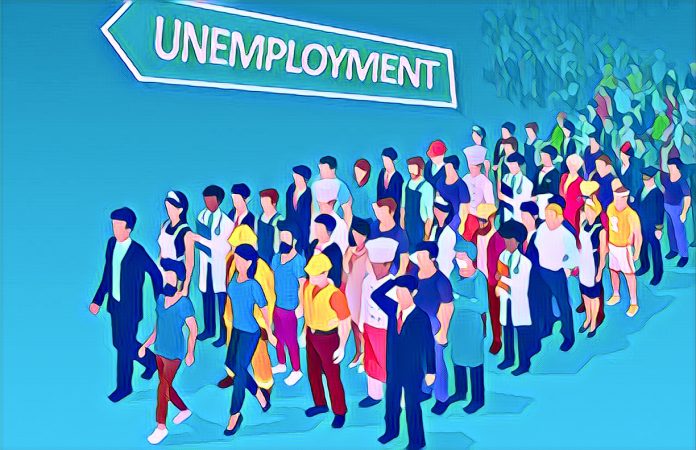Nigeria, Africa’s most populous nation and largest economy is facing a worsening unemployment crisis as millions of people struggle to find work amid sweeping economic reforms.
According to the latest Nigeria Labour Force Survey, the unemployment rate rose to 4.2 percent in the second quarter of 2023, up from 4.1 percent in the first quarter. This is the first increase since the National Bureau of Statistics (NBS) adopted a new methodology for measuring the country’s labor force in 2018.
The new method defines the unemployment rate as the share of the labor force (the combination of unemployed and employed people) who are not employed but who are actively searching and are available for work.
The NBS report also revealed that the unemployment rate was higher among women (5.9 percent) than men (3.5 percent), and higher in urban areas (5.9 percent) than in rural areas (2.5 percent). Among young people aged 15 to 24, the unemployment rate was 7.2 percent, up from 6.9 percent in the previous quarter.
The report attributed the rise in unemployment to the impact of the economic reforms implemented by the administration of President Bola Tinubu, who took office in May 2023 after winning a landslide victory in the presidential election.
The reforms, which include the removal of the petrol subsidy, the devaluation of the naira, and the liberalization of the foreign exchange market, were aimed at boosting growth, reducing inflation, and attracting foreign investment.
However, the reforms have also increased the cost of living, reduced consumer spending, and disrupted business activities, especially in the micro, small and medium enterprises (MSMEs) and manufacturing sectors, which account for the bulk of employment in Nigeria.
Femi Egbesola, the national president of the Association of Small Business Owners of Nigeria (ASBON), said the tough business environment has eroded the confidence of investors and entrepreneurs, leading to business closures and job losses.
“Those who are expected to come as new investors are scared of coming, which is affecting the ability to create new employment opportunities,” he said.
Gabriel Idahosa, the president and chairman of the council of the Lagos Chamber of Commerce and Industry, echoed the same sentiment, saying that many businesses are struggling to survive and are either laying off their staff or not hiring new ones, pushing more people into the unemployment market.
The NBS report also showed that the majority of workers (around 88 percent) were self-employed in the second quarter of 2023, while only 12 percent were in wage employment. In terms of educational attainment, the unemployment rate was highest for those with post-secondary education (8 percent), followed by those with upper-secondary education (5.4 percent).
The report noted that the labor force participation rate among the working-age population remained high at 80.4 percent in the second quarter, while the employment-to-population ratio was 77.1 percent.
The NBS also calculated the combined rate of unemployment and time-related underemployment, which measures the share of the labor force population that is either unemployed or working less than 40 hours per week. This indicator stood at 15.5 percent in the second quarter of 2023.
Nigeria’s unemployment crisis is not unique in Africa, where many countries are grappling with high levels of joblessness, especially among the youth. According to the International Labour Organization (ILO), the average unemployment rate in sub-Saharan Africa was 6.6 percent in 2022, while the youth unemployment rate was 12.4 percent.
The ILO has warned that the COVID-19 pandemic, which has disrupted economic activities and triggered lockdowns and restrictions, could worsen the unemployment situation in the region unless urgent measures are taken to support the labor market and protect the livelihoods of the most vulnerable.
Some of the measures recommended by the ILO include expanding social protection, promoting decent work, supporting MSMEs, enhancing skills development, and fostering social dialogue.
Despite the challenges, some experts and analysts remain optimistic that Nigeria can overcome its unemployment crisis and achieve inclusive and sustainable growth if it can leverage its abundant human and natural resources, diversify its economy, improve its infrastructure, and enhance its governance and institutions.
Source: Business Day



